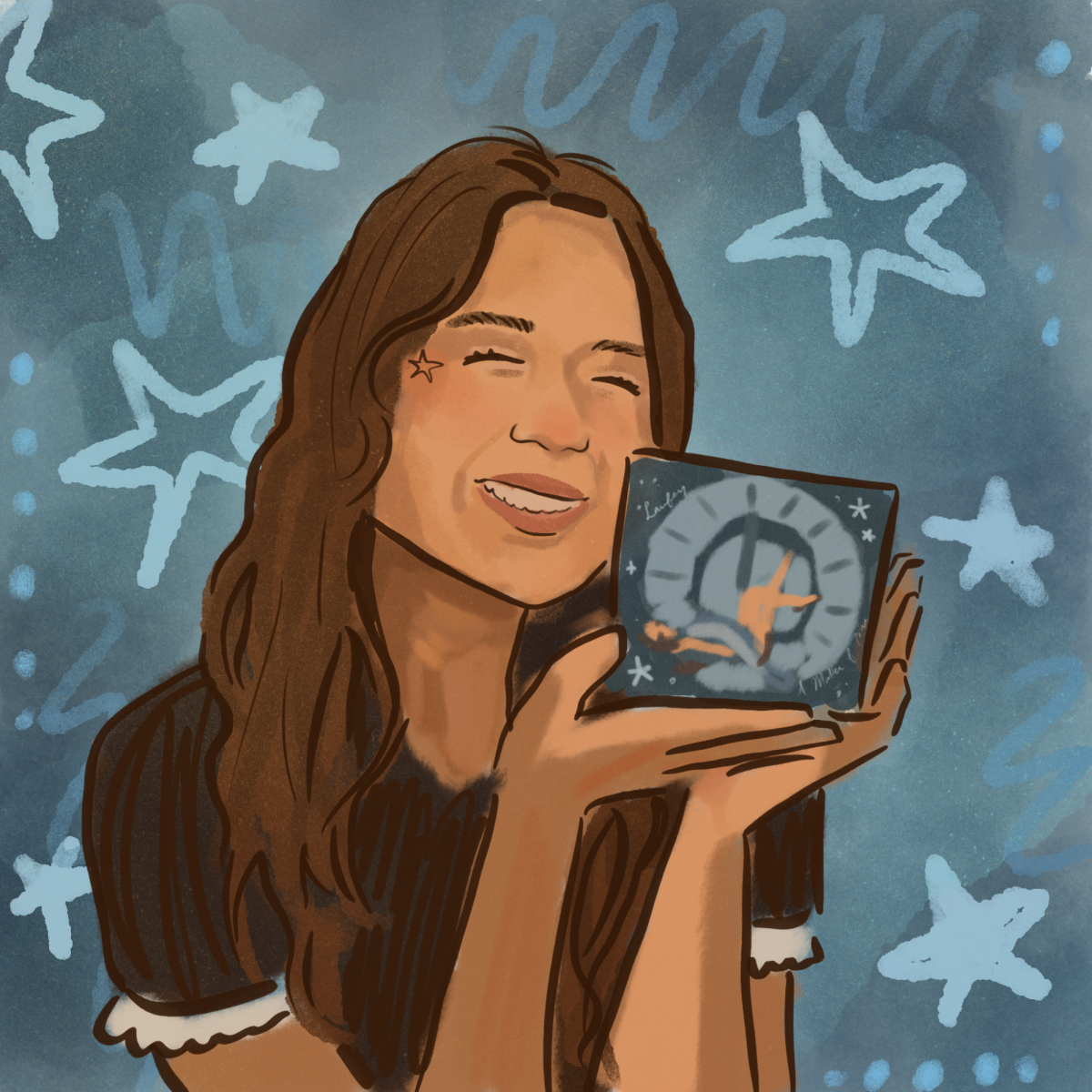Laufey’s long-awaited new album, A Matter of Time, was released on August 22, 2025, her first album containing new music since 2023. The album has 14 songs officially, plus a bonus track titled “Seems Like Old Times.” It’s become popular quickly, with many of the songs trending on social media in addition to reaching the Top 50 on Spotify. Laufey co-wrote most of the songs with Spencer Stewart, a record producer and jazz composer whom she has worked with in the past.
Throughout the album, there are distinct transitions between the phases of a relationship as Laufey explores love by showcasing a combination of jazz, pop, and classical tunes. The album kicks off with the song “Clockwork”, where she is on a first date that leads to, “falling in love, like clockwork,” hence the name. In her next song, “Lover Girl,” which has become one of the most popular, she describes a relationship in which she is the sole participant, where she says, “oh, what a curse it is to be in love,” featuring a catchy and playful bossa-nova rhythm in the background.
The next few songs are much more melancholic, delving into not only personal insecurities she has throughout the relationship but also societal issues she faces being a woman where she says: “a woman’s best currency is her body, not her brain.”
The song featuring that quote, “Snow White,” begins with a solo guitar strumming softly, slowly building up into an orchestral background as the song reaches its climax. The resolution follows quickly after, which ends the song suggesting she accepts herself the way she is with the lyric, “and if I don’t have enough of it, I’ll never have enough of it.”
“Carousel,” another song in this phase, combines dancing notes of piano and chimes while the lyrics capture someone wistfully falling out of love, describing how they feel inadequate for their partner and the fear of inevitably disappointing them. Laufey sings, “the city of acrobats of clowns and illusory traps with me was losing its wonder.”
The album seamlessly transitions to the next phase with an interlude called “Cuckoo Ballet,” an entirely instrumental track that mimics the sound of a cuckoo clock, playfully continuing with the overarching theme of time in the album. It contains solos from various classical instruments such as the flute, bassoon, clarinet, and harp and showcases Laufey’s technical skill in playing the cello.
Laufey goes from spinning out of her own control like a carousel to her song “Tough Luck” where she takes that control back and directly confronts her manipulative, cheating partner and says, “You won’t be missed, I’m glad to see you go.”
This song is a turning point in the album where Laufey shows a new side of unfamiliar anger and resentment that significantly contrasts the other songs that make up this album with its more intensely spoken words accompanied by the swelling sound of her twin sister Junia on the violin. The song continues to accumulate more and more emotion and as she reiterates her frustration, conveyed through the harsh beats on the drums and low staccato notes on the cello combined with the voice of a baritone singer.
The next song, “A Cautionary Tale,” is more regretful and solemn in contrast to the fiery resentment of the previous track. As Laufey processes the end of her relationship, she realizes she allowed her life to be consumed by it saying, “I gave too much, I gave myself up.”
Her anger in the previous song transforms into understanding for her partner’s past as she personifies his internal pain as a “guiltless child,” showing that while she doesn’t want to be together she still cares for him.
Laufey begins to purge all traces of her former relationship from her life in the following song, “Clean Air,” where the accompanying music continues with short notes, similar to how she sang in Tough Luck, with some elements of her usual style mixed in, representing the lasting effects this relationship has had on her.
The addition of the bonus track, “Seems Like Old Times,” ends the album on a happy note with her reminiscing about her past with her partner. It ties together themes of time and brings back the listener to the untroubled lyrics of the first songs, following the analogy of a clock’s full cycle finishing at the start.
All in all, this album covers a vast variety of meaningful and complex topics, including the inherent struggles of womanhood, new relationships, the abrupt end of childlike naivety, and how things wear down over time in both good ways and bad.

